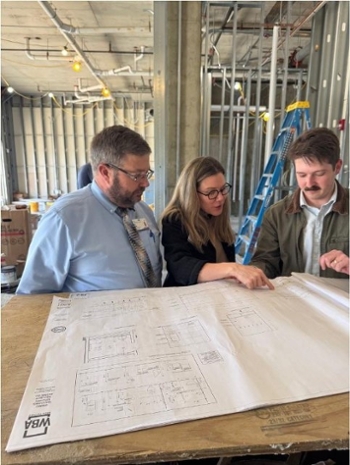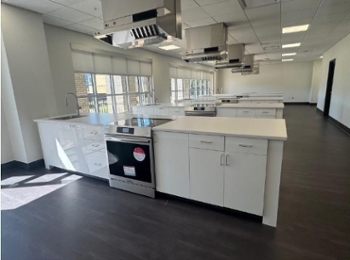The Bower Center for Culinary Medicine and the SOM Culinary Medicine Program

Wendell Berry, the poet, essayist, and farmer, famously wrote, “People are fed by the food industry, which pays no attention to health, and are healed by the health industry, which pays no attention to food.” In many ways, he was right. In 1985, the National Academy of Sciences recommended that medical schools offer at least 25 hours of nutrition education1. However, 25 years later, a 2010 survey of U.S. medical schools found that only 27% of programs met that recommendation2 and in 2015, only 29% of medical schools reached the recommended nutrition education thresholds3. Again in 2023, a study of medical students showed that the situation had actually worsened with just 7.8% of medical students reporting 20 or more hours of nutrition education across all four years of medical school4. The 2023 survey also found that approximately 58% of medical students reported having no formal nutrition education during their medical school training and those that did receive nutrition programming received on average three hours per year.
In light of these data, new federal pressure is emerging for medical schools to add or expand nutrition education curricula to address the rising chronic disease rates across the country. As a result, the LCME is considering the inclusion of required nutrition education to be directly included in medical school programs to achieve accreditation as part of a revised element in the standard addressing curricular content. The shifting landscape of educational regulations and the increasing rates of chronic disease make it imperative that medical schools add or increase nutrition education in training programs.
Within this landscape, the UMMC School of Medicine is poised to meet these opportunities based on the decades-long development of the Culinary Medicine Program (CMP). The UMMC Culinary Medicine Program equips students to translate evidence-based nutrition into everyday practice, foster healthy eating behaviors for patients and themselves, and address food as a vital component of disease prevention and management. The CMP began in 2016 as a medical student club to garner student interest in culinary medicine and nutrition, and to develop momentum for curriculum development. Partnering with the Tulane Goldring Center for Culinary Medicine, the CMP launched a series of nutrition education sessions that addressed diabetes, obesity, hypertension, and mediterranean diet principles using pop-up cooking stations. In two years of the CMP’s creation, we saw improvements in the nutrition scores of the USMLE Step 1 exam. Leveraging this success, we received funding from the Bower Foundation and the SOM’s Impact the Race grant to create a permanent teaching facility for CMP sessions. Through this almost $1 million investment, we designed and built a dedicated teaching kitchen, located in The Meridian Building on Lakeland Drive. This state-of-the-art teaching kitchen will allow us to foster a new generation of health professionals who incorporate culinary medicine techniques and nutrition knowledge into their practice to promote healthier patients and communities.


The CMP also received approval to establish the Bower Center for Culinary Medicine as an institutional center. With center designation and completed construction, we look forward to hosting our first classes with M1 and M2 students this fall and celebrating the grand opening of the Bower Center for Culinary Medicine. The Bower Center will provide a unique experiential learning environment where students will learn about important nutrition concepts for patient care while simultaneously helping the UMMC School of Medicine respond to upcoming accreditation requirements. Overall, the Bower Center will help change the landscape of healthcare and work toward a health industry that “pays attention” to food as medicine in the fight against disease.
- National Research Council Committee on Nutrition in Medical Education. Nutrition Education in U.S. Medical Schools. 1985 Washington, DC National Academy Press.
- Adams KM, Kohlmeier M, Zeisel SH.. Nutrition education in U.S. medical schools: Latest update of a national survey. Acad Med. 2010;85:1537–1542.
- Frates B. The Evolving State of Nutrition Education. Am J Lifestyle Med. 2023 Jul 7;17(6):759-761. doi: 10.1177/15598276231187582. PMID: 38511109; PMCID: PMC10948932.
- Duggan, Michael P.; Kodali, Anahita T.; Panton, Zach A.; Smith, Shannon M.; Riew, Grant J.; Donaghue, Jack F.; Leya, Gregory A.; and Briggs, Logan G. (2023) “Survey of Nutrition Education Among Medical Students,” Journal of Wellness: Vol. 4 : Iss. 2 , Article 11.


